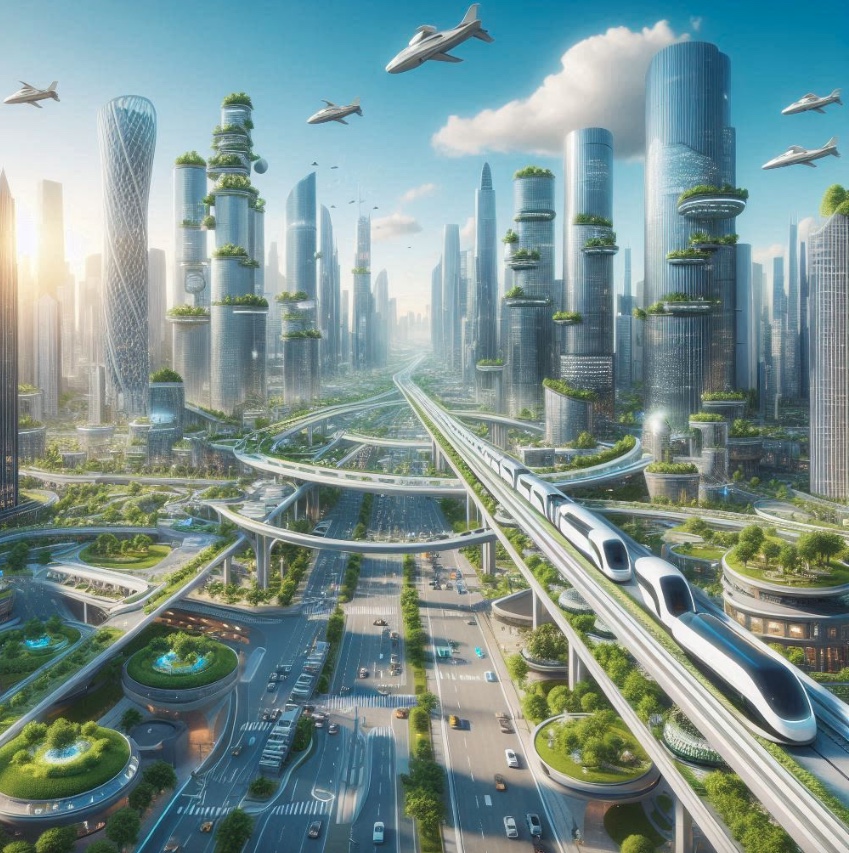The concept of the “smart city” has become ubiquitous in contemporary urban discourse. But what does it really mean? The expression is more of a political label than an accurate description of urban reality. It’s a way to paint those who believe in market forces or oppose large infrastructure projects as “foolish.” London, with its urban chaos and contradictions, is often cited as an example of a smart city. But if even a metropolis like London, with its empty skyscrapers and ubiquitous surveillance cameras, can be called “smart,” perhaps we should reconsider the uncritical enthusiasm for digital urban planning.
We can also look at Rome, the eternal city where technology doesn’t magically solve problems but where change is constant while maintaining a certain continuity. Perhaps, instead of focusing on flashy and fragile technologies, we should address the real urban problems: the ageing population, the degradation of infrastructure, and climate change. Large tech companies like Google, Apple, Facebook, and Amazon are playing an increasingly important role in building the cities of the future. But these cities will not necessarily be smart, efficient, or fair. Rather, they will reflect the interests of these companies, which will use technology to increase their influence and attract capital. Are smart cities dead? This was asked some time ago by MIT.
Surveillance is not so smart
Imagine a city where the government and big tech companies are constantly watching you, tracking your every move and using that information to control what you do. That’s the kind of dystopian future the article warns about. Real citizen participation could be replaced by mass surveillance, and algorithms could steer our choices we don’t understand or have any control over. This raises some serious questions about the future of our cities. Will smart cities truly benefit everyone, or will they just create new forms of inequality and control? How can we ensure that technology is used to empower citizens, not to restrict their freedom? We need to consider these issues carefully as our cities become increasingly “smart.”
Numerous illustrative cases in Europe and outside our continent have shown how the citizen’s footprint has produced tangible and effective effects where it has been involved by institutions, both economically and socially, enabling us to put people back at the centre of city developments, shortening the disconnect with institutions and listening to those who live the city every day.

Global interests
Could we criticize the idea of a “free world internet for all,” arguing that geographical location and economic interests continue to prevail? Yes, we have to. Cities like Duisburg and Tallinn are examples of this, with the former proposing itself as a “Chinese smart city” in Europe and the latter offering “e-residency” to foreign citizens. Smart cities, far from being open and inclusive platforms, will become gated communities with complex and opaque rules. Mass surveillance will replace democratic participation, and algorithms will be used to control and direct citizens.
We must also consider a certain optimism towards digital technologies, recalling that technology companies are not necessarily suited to managing urban complexity. Amazon, for example, is destroying the urban fabric with its logistics centres and monopoly policies. We need to call for a critical rethinking of the concept of the smart city, emphasizing the importance of addressing real urban problems and resisting the temptation to entrust the future of cities to large technology companies. The future cities will have to be rich, powerful, and culturally attractive, but above all, they will have to be able to manage their own affairs autonomously and responsibly.



